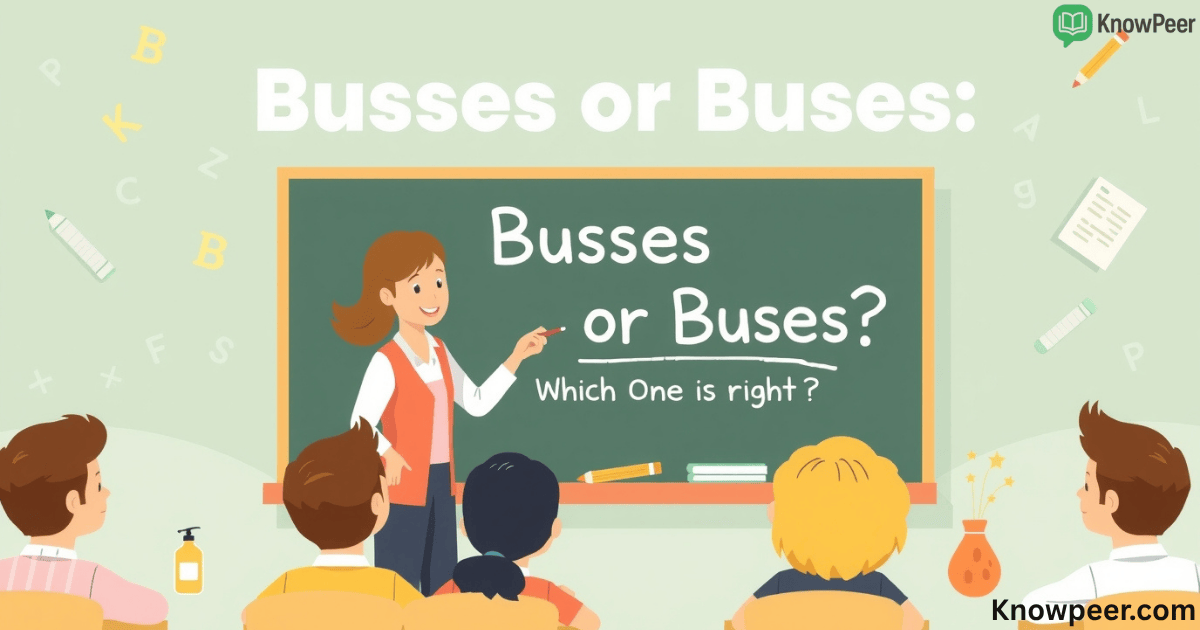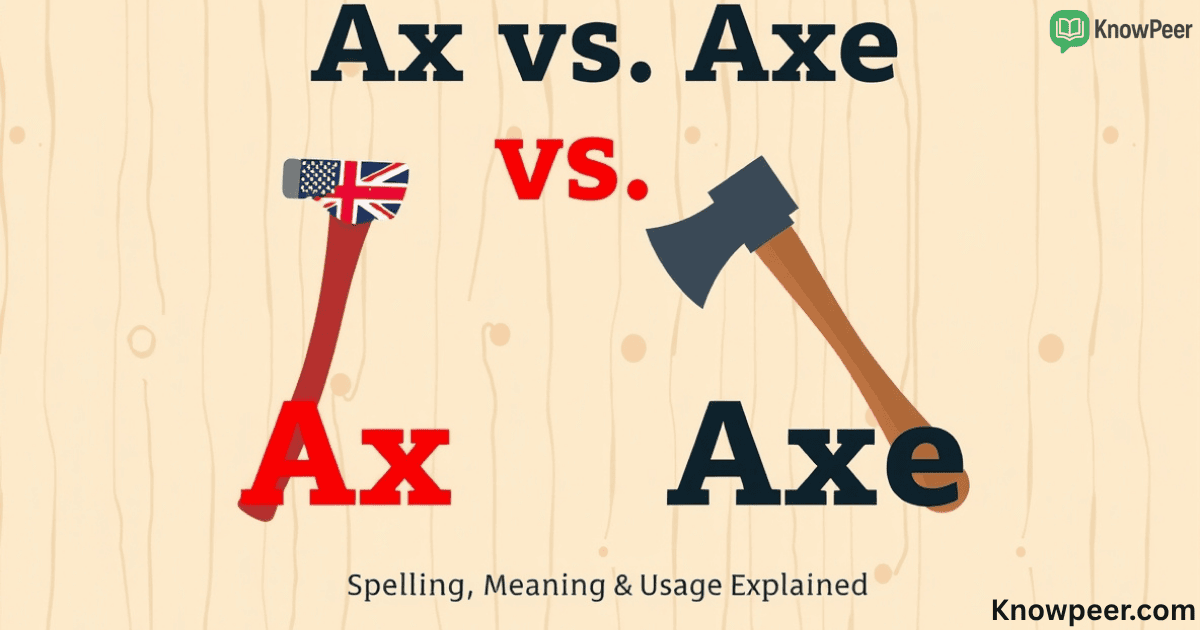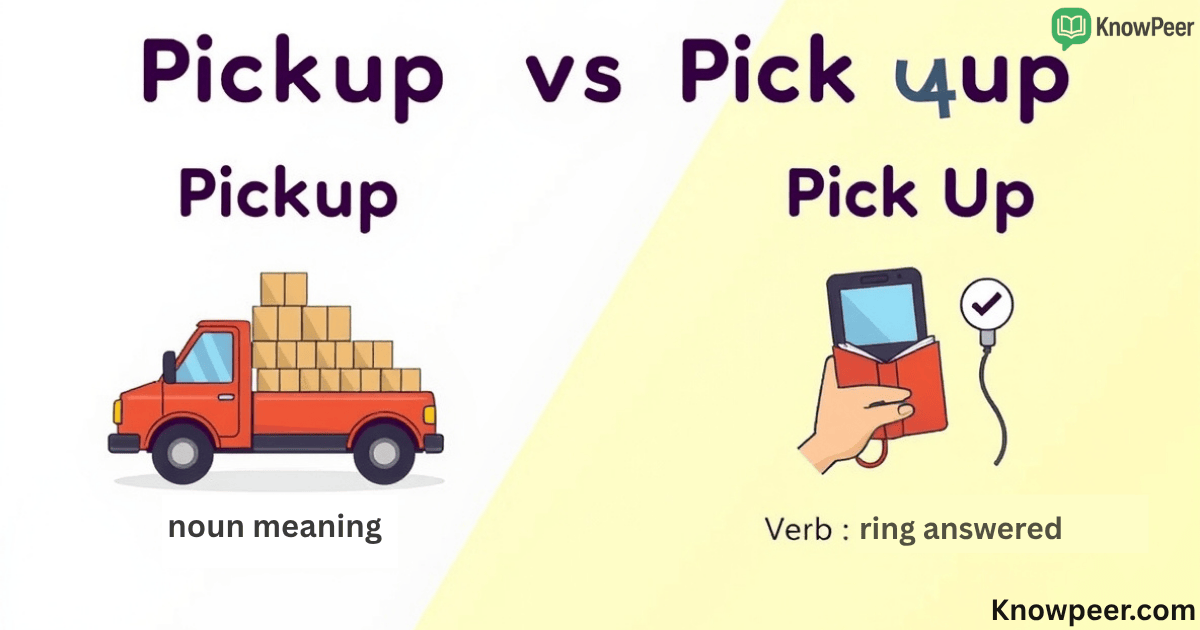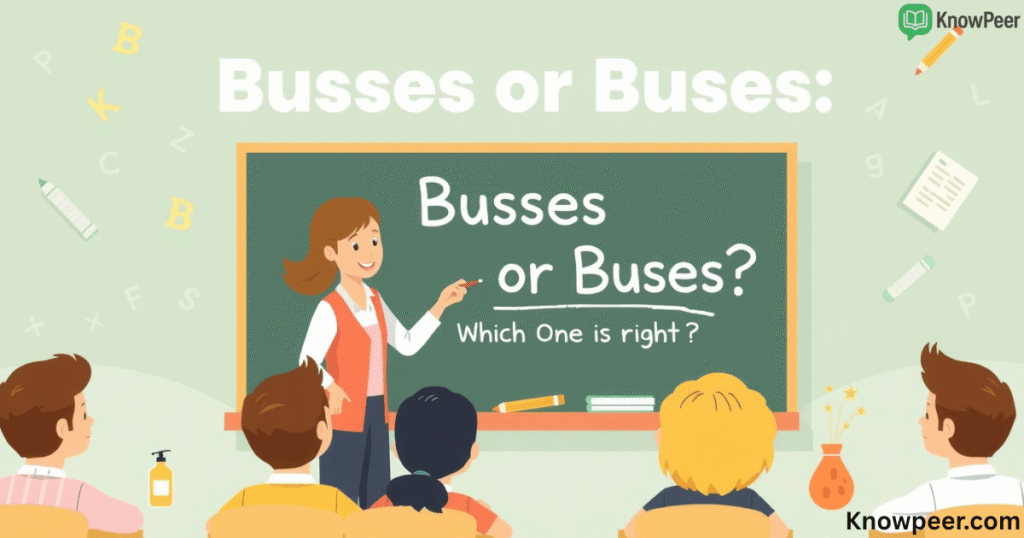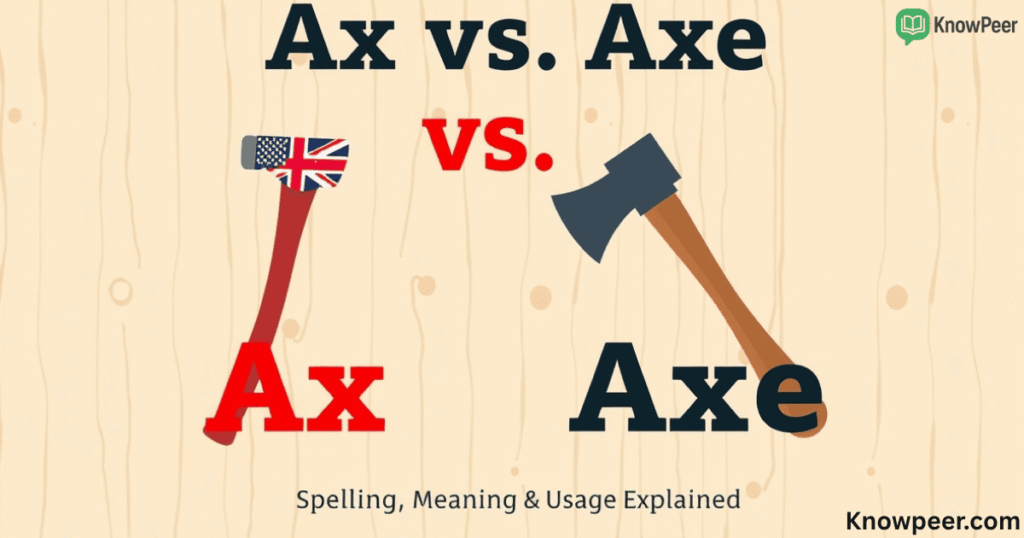Language can be tricky. Even a simple word like bus confuses people when it becomes plural. Many ask, “Is it busses or buses?” This confusion has traveled across classrooms, online forums, and even dictionaries. The answer seems small, yet it reveals much about how English evolves. Let’s explore the busses vs buses meaning, discover the correct plural of bus, and understand the history behind both spellings.
Busses or Buses — Which One Is Correct?
When it comes to writing, “buses” is the correct plural of bus in modern English. If you’re describing more than one vehicle, you should always write buses, not busses. For example, “The buses arrived late due to heavy rain.” This is the accepted form in dictionaries, grammar books, and schools worldwide.
In older English, however, “busses” once appeared as an alternative plural. But language experts, including the Oxford Dictionary and Merriam-Webster, now mark it as outdated for transport use. The spelling busses survives today only when referring to a completely different word — the verb “buss”, which means “to kiss.”
| Word | Type | Meaning | Correct Example |
| Buses | Noun (Plural) | Vehicles for transport | The buses were on time. |
| Busses | Verb (Plural) | To kiss (archaic) | They exchanged gentle busses on the cheek. |
When ‘Busses’ Is Actually Right
The word busses might look like a misspelling, but in certain rare cases, it’s perfectly correct. The confusion happens because busses can be both a mistaken plural of bus and a valid plural of another English word — buss, which means “to kiss.” This old-fashioned term comes from early English, and though it’s no longer common in modern speech, it still appears in poetry, romantic writing, and older literature. For instance, you might read a line like, “They shared tender busses beneath the stars,” where the meaning is affectionate and symbolic, not about transport.
In this context, busses meaning in English has nothing to do with vehicles or transportation. It’s a verb turned into a noun, expressing a simple act of affection. Dictionaries such as Oxford and Cambridge list it as archaic, meaning it’s rarely used in daily English but still recognized in formal records of the language. The buss verb definition is to kiss lightly or gently. So, when you see busses used this way, it isn’t wrong at all—it’s simply an old word preserved by literature.To remember easily: when you’re writing about travel, use buses. When you’re talking about kisses or romance, busses might be the charming, vintage choice.
American vs British English — The Evolution of the Word
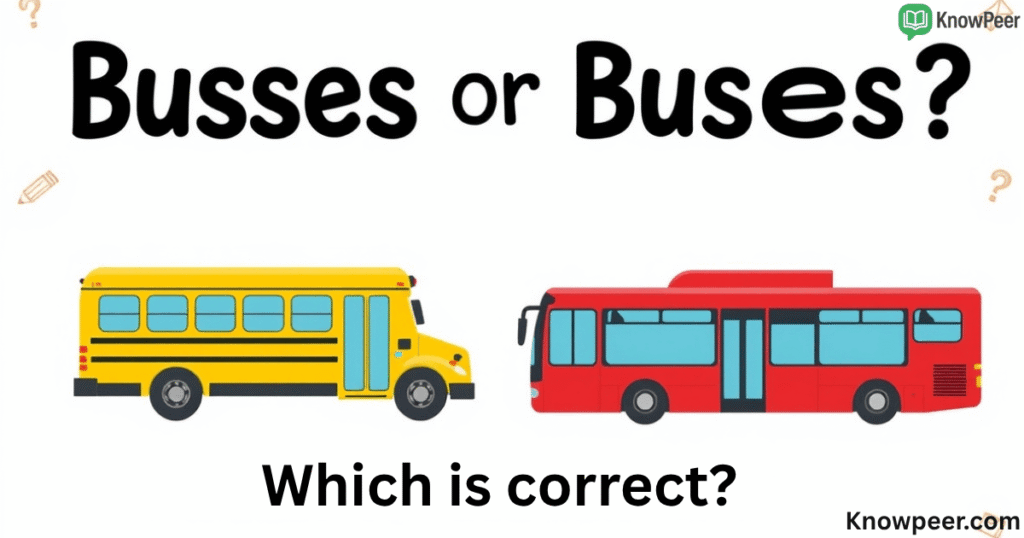
Both American and British English once accepted busses, but over time, buses became the global standard. The Oxford English Dictionary recorded “busses” in early 20th-century British texts. However, linguistic simplicity led to one “s” being dropped. Today, both dialects officially use buses as the correct spelling of buses in transportation contexts.
In American writing, you’ll find bused as the past tense of bus, while British English often uses bussed. That small variation shows how languages evolve differently, yet reach common ground for clarity.
| Region | Preferred Plural | Past Tense | Example |
| American English | Buses | Bused | The school bused students to the city. |
| British English | Buses | Bussed | Students were bussed to London. |
This historical shift simplified spelling rules and made buses spelling consistent worldwide. So, if you’re ever unsure about busses vs buses grammar rules, remember — modern English favors buses in every form related to transportation.
Bussed or Bused — Which Past Tense Is Correct?
The English language often gives us more than one “right” answer, and that’s exactly what happens with bussed and bused. Both words are technically correct; the choice depends on where you live and which English variety you follow. In American English, writers usually prefer bused as the past tense and past participle of bus. For example, “The company bused employees to the training site.” In contrast, British English leans toward bussed, saying, “Students were bussed to London for the trip.” While both spellings are accepted, consistency matters most. If you begin using bused, stick with it throughout your text instead of switching back and forth.
The difference comes from how English evolved over time. Doubling the final consonant, as in bussed, was once common when forming the past tense of short verbs ending with a single vowel followed by a consonant. However, American English simplified this rule, leading to shorter forms like bused and traveled instead of bussed and travelled. Both follow standard bus plural form grammar rules, but style guides today recommend using the simpler bused form for clarity. So, whether you prefer bused or bussed, both are grammatically sound—just remember, clarity and consistency always come first.
Real-World Examples of Buses and Busses
Let’s look at how these words appear in real sentences. When describing vehicles, we say buses:
“City buses run every 20 minutes during rush hour.”
“Tour buses parked along the main road.”
“The buses were delayed due to snow.”
When referring to kisses, busses makes sense:
“The children gave their mother quick busses goodnight.”
“He bussed her softly before saying goodbye.”
From these buses vs busses examples, you can see context matters. While buses belongs to the world of transportation vocabulary, busses survives quietly in romantic or poetic English.
Quick Grammar Recap
Here’s a summary table for quick learning:
| Term | Word Type | Meaning | Example Sentence |
| Bus | Noun | A vehicle for public transport | I took the bus to school. |
| Buses | Noun (Plural) | More than one bus | All buses were full. |
| Bussed/Bused | Verb (Past Tense) | Transported by bus | Students were bussed to the museum. |
| Busses | Verb (Plural)** | Kisses (archaic use) | They exchanged busses before leaving. |
Why This Confusion Still Matters
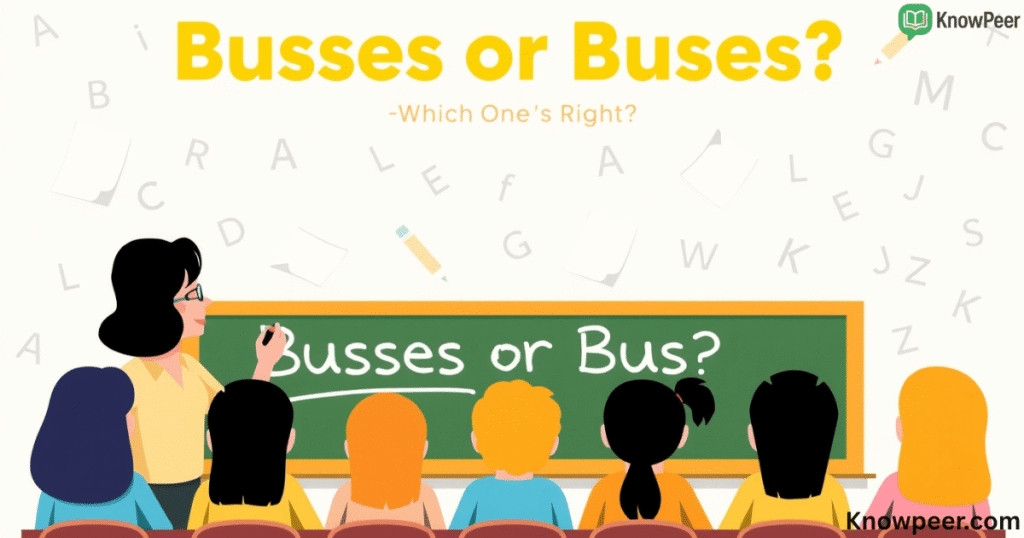
The debate over busses or buses might seem small, but it highlights a deeper truth about English — the language constantly changes, and those changes can affect how people judge your writing. Many learners still wonder, “Is it buses or busses?” because they see both forms online or in old books. The confusion continues because the word busses sounds identical to buses, yet the meanings differ entirely. Using the wrong one can make your writing look careless, especially in professional or academic settings. Grammar tools like Microsoft Word and Grammarly automatically correct busses to buses, reinforcing the modern spelling standard. That’s why knowing the difference between buses and busses is still important today.
Understanding this distinction isn’t just about spelling; it’s about communication. When you write buses, readers instantly think of transportation. But when you write busses, it suggests affection — the plural of buss, meaning “to kiss.” Mixing the two can confuse readers or even change your sentence’s meaning. For example, “The couple exchanged buses” makes no sense, but “The couple exchanged busses” fits perfectly in an old-fashioned love story. These small grammar nuances shape clarity and tone, proving that mastering details like busses vs buses grammar rule keeps your English sharp, confident, and credible in any context.
Frequently Asked Questions
1. Is “busses” ever correct for vehicles?
No. It’s considered a grammar mistake buses or busses confusion. Use buses for transport.
2. Why do some old books say “busses”?
Older spellings remained in print before language reforms standardized buses spelling.
3. Are “bused” and “bussed” both right?
Yes, but bused is more common in American writing, while bussed appears in British contexts.
4. What’s the plural of bus in British English?
Both American and British English now agree on buses as the correct plural of bus.
5. Why do people still mix them up?
Because both sound the same, and autocorrect sometimes fails to catch the subtle buses vs busses spelling difference.
Conclusion
So, is it buses or busses? The answer is clear. Use buses when you talk about transportation and busses only when referring to kisses. Dictionaries like Cambridge, Oxford, and Merriam-Webster all confirm this rule. The correct form buses or busses question reflects how language adapts for clarity.
If you want to remember easily, think of this phrase: “People ride buses, but lovers share busses.” One belongs to the road; the other to romance. Understanding such distinctions keeps your writing precise, modern, and polished.
Sources
Oxford Learner’s Dictionaries
Merriam-Webster Dictionary
Cambridge Dictionary

